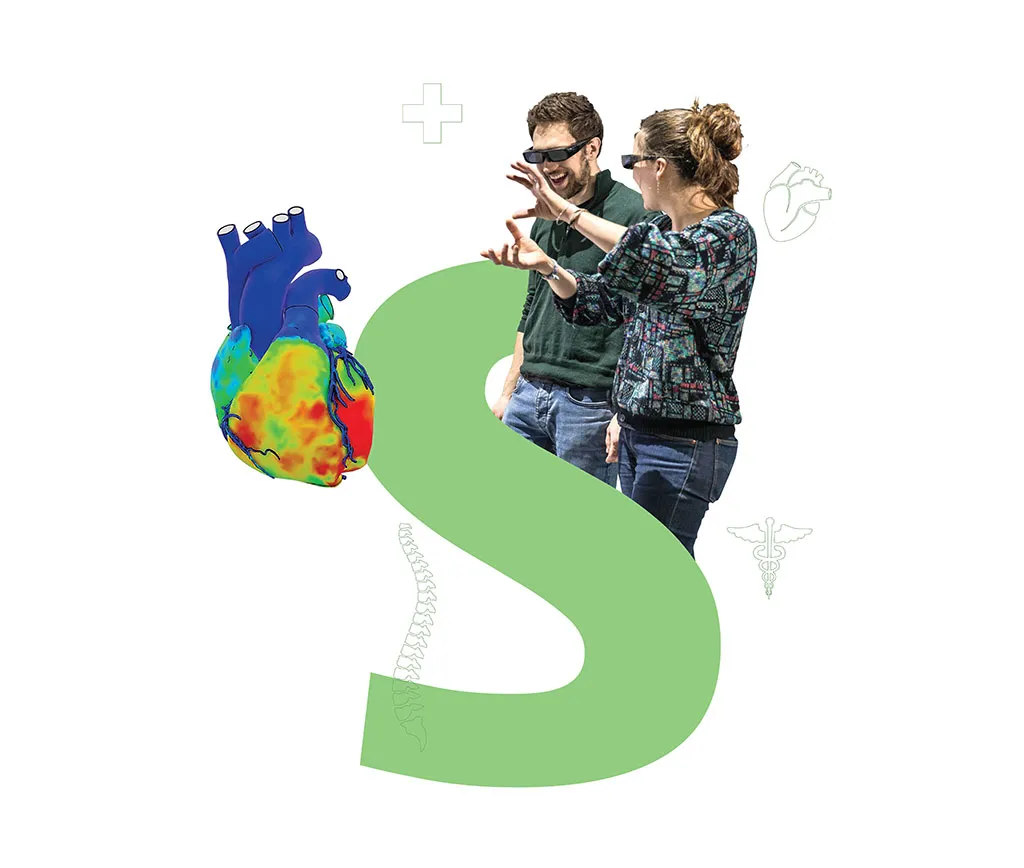Enhancing medical training using VR
Sheffield University is learning by doing

Tackling cardiovascular disease and musculoskeletal illnesses
Cardiovascular diseases (CVDs) are the number one cause of death globally: more people die annually from CVDs than from any other cause. According to the World Health Organization (WHO), an estimated 17.7 million people died from CVDs in 2015, representing 31% of all global deaths. The prevalence of work-related illness such as musculoskeletal disorders (WMSD) is increasing, notably in countries with the highest life expectancy. Yet a great deal still needs to be done to improve treatment and healthcare for the growing number of patients suffering from this type of disease or disorder.
New learning methods to address increasingly common human diseases and disorders
Handling complex environments and situations is now possible thanks to 3D visualization and virtual reality technologies. Combined as part of cutting-edge teaching methods, 3D and VR technologies enable students to learn by doing through precisely defined, physically unrestricted scenarios. The Insigneo Institute in Sheffield (UK) recently unveiled two new virtual reality (VR) laboratories aimed at giving students a deeper understanding of modern-day diseases and disorders, enabling them to develop innovative solutions.
Our two new virtual laboratories will enable us to be at the forefront of teaching in combining computer simulations with a virtual reality environment. These labs are very important as they will train the engineers of tomorrow on how to integrate models within routine clinical workflows in a clinical environment.
VR labs for hands on training
The state-of-the-art facilities will enable undergraduate and postgraduate bioengineering students to acquire key skills for designing medical devices and procedures. They can now use a virtual 3D human body to experience biomechanical performance and function and integrate this information into pre-op planning. As part of technology-driven courses, 30 students benefit from 50 hours of intensive hands-on training in the virtual reality labs, which are also open to all final-year mechanical engineering students and MsC students (350 in total).
The 2030 Agenda for Sustainable Development
Adopted by all United Nations Member States, provides a shared blueprint for peace and prosperity for people and the planet, now and into the future. At its heart are the 17 Sustainable Development Goals (SDGs), which are an urgent call for action by all countries - developed and developing - in a global partnership. La Fondation Dassault Systèmes project at Sheffield University's Insigneo Institute UK supports three of these goals:



Dassault Systèmes La Fondation is proud to support Sheffield University Insigneo Institute

Sheffield University's Insigneo Institute for in silico medicine (UK) is Europe's largest research institute dedicated entirely to the development, validation, and use of in silico medicine technologies (using computer modeling and simulation to conduct research or clinical trials). Insigneo performs cutting-edge research in areas of fundamental and applied biomedical modeling, imaging and informatics in order to achieve a transformational impact on healthcare.
